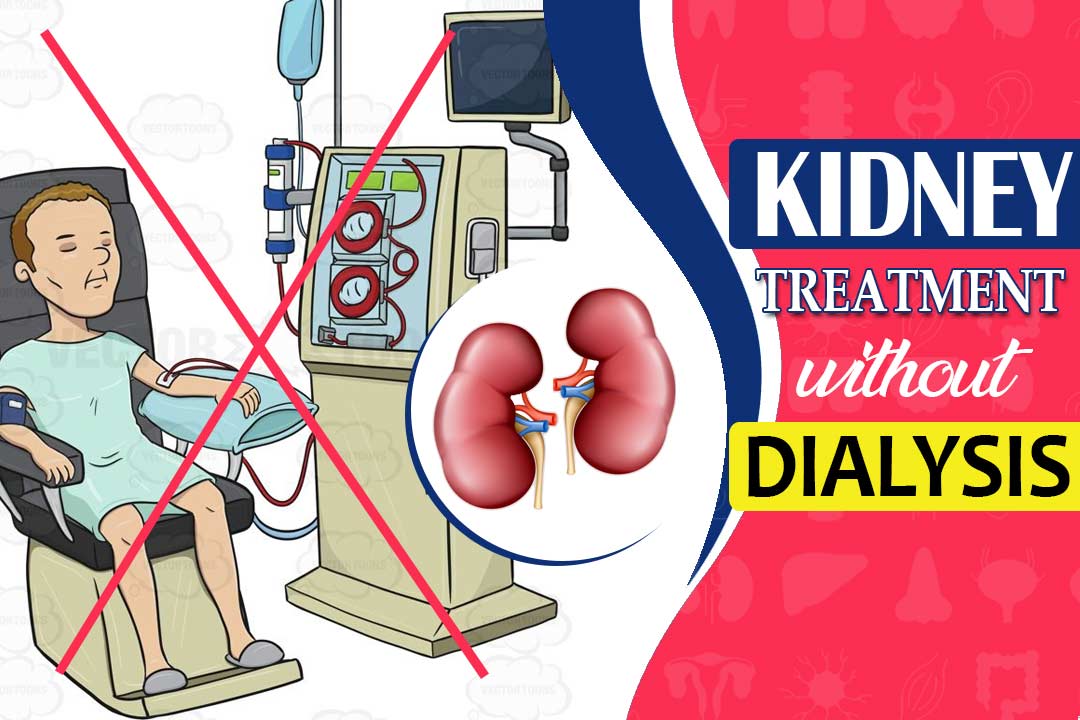
Dealing with kidney disease and having to go on dialysis can be extremely tough, not just physically but emotionally and mentally as well. The endless trips to the hospital, the limitations on what they eat and drink, their constant fatigue, how it feels to have one’s life turned upside down, and needing help doing the smallest tasks. And so, it’s not surprising that many dialysis patients start looking into complementary or alternative treatments they might seek out to help alleviate their symptoms and improve their overall quality of life. One of the most searched and discussed of these aligns with a centuries-old Indian healing tradition known as Ayurveda.
But the important question here is: Is Ayurvedic kidney treatment safe for kidney dialysis patients? The answer, as so often when it comes to health, is not a simple yes or no. It is based on several factors such as the stage of kidney disease, the patient’s general health and the type of Ayurvedic treatment they are interested in. Let’s take a closer look to find out where Ayurveda could fit in for a dialysis patient.
A quick explainer for any readers who don’t know: Dialysis is a life-sustaining treatment that helps remove waste, unwanted fluid and toxins from the blood when the kidneys are no longer able to work properly to filter them out. It is a typical presentation in CKD patients, particularly at stage 5 (end stage renal disease).
Dialysis is a sort of artificial kidney, but it is not a therapy. It can manage symptoms and help avert complications, but the damage to the kidneys underneath persists. This is where the promise of complementary approaches like Ayurveda may come into play: Not to cure the body, necessarily, but to boost it and possibly slow the decline, improving the quality of whatever life is left.
In Ayurveda, the kidneys are considered part of the “Mutravaha Srotas” (urinary system). Kidney problems are often seen as a result of imbalances in doshas, primarily Vata and Kapha. Poor diet, stress, overuse of painkillers or antibiotics, and lifestyle issues are believed to disturb these doshas and weaken Agni (digestive fire), leading to the buildup of toxins (ama) in the body and eventually affecting the kidneys.
Ayurveda doesn’t treat just the disease; it treats the person. It looks at the root cause, the dosha imbalance, and the patient’s prakriti (body constitution), and builds a treatment plan tailored to the individual.
Let’s be clear: Ayurveda is not a replacement for dialysis. But it can play a supportive role alongside it, provided it’s done under expert guidance. Here’s how:
Ayurveda has a lot to offer dialysis patients, but there is a set of important precautions they need to take before running to get Ayurvedic medications:
It’s common to want Ayurveda to “cure” kidney disease or at least to help you get off dialysis. But it’s crucial to remain realistic. So with Ayurveda, it takes time and works deeply; it focuses on long-term balance and long-term healing rather than quick fixes. Some patients may feel better, and others may be able to dialyze less often, under medical supervision, or simply find more comfort and mental peace from the treatment.
There are success stories, but they generally involve a blend of early intervention, extremely disciplined lifestyle changes and very personalized Ayurvedic care.
So, is Ayurvedic treatment for kidney dialysis patients? Yes, as a supportive therapy, it absolutely can be. It can help improve the quality of life, manage side effects, and potentially slow the disease's progression when used wisely and responsibly. However, it is not a substitute for dialysis or conventional medical care, especially in advanced kidney failure.

Certificate no- AH-2023-0186
JAN 05,2023-JAN 04,2026
"Ayurveda is not just a system of medicine; it's a way of life. Connect with us to embrace a lifestyle that nurtures your body, mind, and soul."
Book Consultation Now